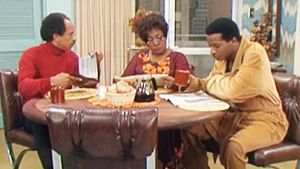
Treatment GuideJust DiagnosedSex & DatingAfrican AmericanStigmaAsk the HIV DocPrEP En EspañolNewsVoicesPrint IssueVideoOut 100
CONTACTCAREER OPPORTUNITIESADVERTISE WITH USPRIVACY POLICYPRIVACY PREFERENCESTERMS OF USELEGAL NOTICE
© 2025 Pride Publishing Inc.
All Rights reserved
All Rights reserved
Scroll To Top
By continuing to use our site, you agree to our Privacy Policy and Terms of Use.
My clients frequently say how difficult it is to have a conversation with their friends about being HIV-positive, even with friends who also are. A client I'll call Marco had this to say about his friendship network: 'My friends are all about having fun. With them, I have to pretend my HIV doesn't exist. I'm supposed to be the funny guy even when I don't feel very funny.' Another client, who I'll call Shannon, put it this way: 'I'm always the rock. But once in a while, I just want to talk about how I still feel a little bit scared when I'm facing my next doctor's appointment. When I bring it up with my friends, all I get back is 'Oh, don't worry. You're fine.' And I probably am fine. But I still need to be able to talk about it.' While it's important to face HIV with a positive attitude, sometimes being told to stay positive can feel more like 'don't ask, don't tell' than words of encouragement. Silence isn't always so golden. Friends, frenemies, real friends? Many of my clients living with HIV have created a network that includes people who, whether they mean to or not, basically encourage them to keep their HIV, and their feelings about their diagnosis, under wraps. The message they get is 'Don't rock the boat.' But they find that the boat they're on is not taking them to a 'come as you are' party, rather a place where they're given a script to follow. Is HIV the elephant in the room? While you may feel that you can't talk about what's going on around your HIV because your friends don't want to hear about it, they may also be assuming that this is a topic you don't want to talk'or hear'about. The elephant is in the room, but everyone has silently agreed to ignore it. Or your friends may fear that if they talk to you about HIV, they will also need to 'fix' you in some way, and they don't know how to do that. The result is that you lose out on support that you need. Stand back and watch. Turn on your internal video camera and focus it on the person you are in your relationships'how you behave, how you feel, what you give and receive. By doing this, you will gain a clearer picture of the role you're playing and what you would like to change. Ask yourself: Am I sleepwalking through my friendships? Where are we holding back from being real with each other? Get real. Let close friends know you need to be more open about what's going on in your life'the fun stuff and the not-so-fun stuff. Also, communicate that all you really need is for them is to listen'no fixing required. Tell them you are willing to do the same for them. 'Don't ask, don't tell' only works when' Actually, it never works. Make a resolution to attempt more satisfying communication with your friends. It's definitely worth a try. McClain is a counselor in New York City with a specialty in coping with chronic health conditions. His books include The Complete Idiot's Guide to Breaking Bad Habits and Empowering Your Life With Joy.
From our Sponsors
Most Popular
BREAKING NEWS: Trump admin moves to end federal HIV prevention programs
March 18 2025 6:10 PM
Grindr is reminding us why jockstraps are so sexy and iconic
May 02 2025 5:36 PM
Celebrating Black History Month with our annual African American issue
February 01 2025 3:28 PM
Discover the power of Wellness in your life
March 26 2025 12:41 PM
Plus: Featured Video
Latest Stories
The Talk: Starting the conversation
July 25 2025 4:47 PM
BREAKING: Supreme Court rules to save free access to preventive care, including PrEP
June 27 2025 10:32 AM
VIDEO: A man living with HIV discusses his journey to fatherhood
June 10 2025 4:58 PM
500,000 Children at Risk: PEPFAR Funding Crisis
April 08 2025 3:51 PM
Season 4 of The Switch on resilience & radical self-love returns this spring
March 26 2025 12:20 PM
Gerald Garth is keeping people of color happy and healthy through trying times
March 11 2025 3:38 PM
Thanks to U=U, HIV-positive people can live long, happy, healthy lives
July 25 2025 2:37 PM
How the Black AIDS Institute continues to fill in the gaps
July 25 2025 1:06 PM
1985: the year the AIDS crisis finally broke through the silence
June 26 2025 11:24 AM
HRC holds 'die-in' to protest Trump health care cuts
April 28 2025 2:11 PM
Broadway's best raise over $1 million for LGBTQ+ and HIV causes
April 03 2025 7:15 PM
“I felt like a butterfly”: Niko Flowers on reclaiming life with HIV
July 23 2025 12:22 PM
Dancer. Healer. Survivor. DéShaun Armbrister is all of the above
July 02 2025 8:23 PM
Trump admin guts $258 million in funding for HIV vaccine research
June 03 2025 3:47 PM
Two right-wing Supreme Court justices signal they may uphold access to PrEP and more
April 21 2025 4:10 PM
The Talk Season 5 premieres this spring with HIV guidance for the newly diagnosed
March 26 2025 1:00 PM
Jess King is here to help you live your happiest, healthiest life yet
March 24 2025 4:35 PM
Trending stories
Recommended Stories for You










































































